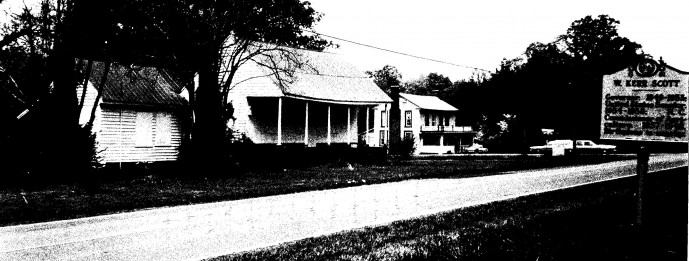Our Story
Since the early 18th century, the Scott family has played a major role in leadership throughout the region. Their accomplishments have been showcased in The Scott Family Collection which focuses on the five major areas of their influence: Agribusiness, Education, Medicine, Public Service and Religion. You are invited to explore this information and learn more about a unique family who has contributed so significantly to Alamance County, this region and North Carolina.
Agribusiness
Agriculture and business were the main focus of the Scotts from their initial settlement in the Alamance region. Over the past two centuries the Scott family has distinguished itself in North Carolina agribusiness with dairy farms and successful farm-based enterprises.
Education
When Alexander Wilson, a teacher in the Caldwell Institute in Hillsborough, decided to open a classical school of his own, Henderson Scott (1814–1870) convinced him to settle in Hawfields so the children in his community could be educated. Wilson moved into his home in 1851 and named his new school “Melville,” in honor of his former teacher, the famous Scottish educator and minister, Andrew Melville. Since that time the Scotts have been involved in education not only in the Hawfields community, but throughout North Carolina. As public school teachers, college professors and trustees, or administrators of the community college system, Scott family members have played a major role in North Carolina’s educational history.
Medicine
The Scott Family has a long history of devoted service in the medical field. When a younger sibling was accidentally burned as an infant, Samuel Floyd Scott helped his mother dress the wounds several times a day for as long as the child survived. Years later he recounted this experience as the inspiration for his pursuit of a career in medicine. After attending the University of North Carolina and the University of Pennsylvania, “Dr. Floyd” began practicing medicine in the Union Ridge area of Alamance County in 1919, delivering over 6,000 babies in his lifetime. Floyd’s younger sister Elizabeth followed him to the University of Pennsylvania and received her RN and Nursing Education degrees. Upon returning to Alamance County she married Dr. George Carrington and taught a Red Cross first aid training class to adults during WWII’s nursing shortage. Numerous family members are or have been practicing nurses (Agnes Scott Haeseler) and doctors (Dr. Charles K. Scott) whose roots in the medical field can be traced back several generations in the Scott, Hughes, and related families.
Public Service
The Scotts of Hawfields are a remarkable family of service-oriented individuals. Within one century, this family produced a legislator and prominent Farmers’ Alliance leader, a governor who later became a U.S. Senator, an NC State Senator of tremendous influence, another governor who later served as the state community college system president, and two state agricultural commissioners. In addition to political service the Scotts have served as members of the armed services, leaders in their churches, schools, and civic organizations.
Religion
The Scots-Irish settlers—including the Scott family—brought with them their staunch Presbyterian faith and traditions. Within the first few years of settlement, the community established formal congregations for worship and fellowship. Integral to the Scott family was their home church, Hawfields Presbyterian, organized in 1755. Samuel Scott and his wife, Nancy Bryan Scott were among the first to sign the church roll of Hawfields Presbyterian Church.



